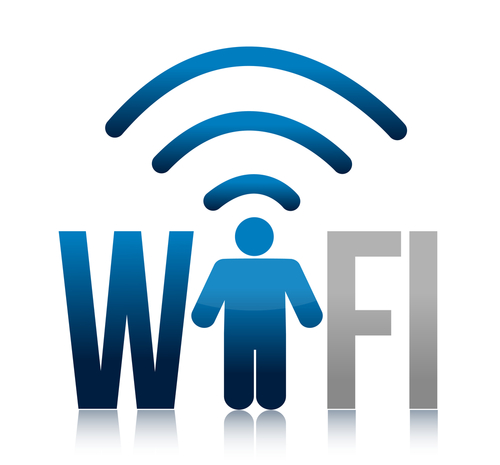Fully 75 percent of respondents to an online survey said that they connect to Wi-Fi daily, and 70 percent would be very happy if their mobile devices could automatically connect to Wi-Fi whenever or wherever it is available.
The online survey conducted by Syniverse also found that 65 percent of respondents connect to Wi-Fi most frequently at home, while another 30 percent most often do so at the office.
Some 58 percent of respondents indicated they would be willing to pay for Wi-Fi, and more than 22 percent would pay $5 or more for access.
Wi-Fi has also become a key issue for mobile service providers who believe it will, in some cases, represent an excellent way of offloading mobile network traffic in urban areas.
Wireless 20/20 has, for example, analyzed the potential impact of Wi-Fi offloading from a 4G LTE network in New York City. The analysis looked at 4G LTE service in NYC, which would require 216 cell sites.

Image via Shutterstock
To keep up with the expected increase in demand for data over the next 10 years, the LTE coverage in NYC would have to be supplemented with an additional 1,879 cell sites. The study concluded that deploying a Wi-Fi offload network in NYC would significantly reduce the burden of data traffic carried by the 4G LTE network and results in 7.2 percent reduction in the total cost of ownership over the 10 year period.
Optimum return on investment is achieved with 33,138 access points placed in high traffic areas.The average density of access points would be 42 per square kilometer.
The total capital investment for deploying the Wi-Fi access network would be $41 million. The 10 year cumulative operating expense would be $59 million.
The number of macro cells would be reduced to 432, a saving of 1,447 LTE sites.
The total cost of ownership would be reduced by $253 million, while cumulative free cash flow would improve by $287 million.
But the business case for Wi-Fi offload is highly dependent on Wi-Fi site rental and backhaul costs. When these costs exceed $100-$150 per month, the business case becomes challenging.
When these costs are less than $40 per month, Wi-Fi offload becomes a highly attractive solution, Wireless 20/20 concludes.
Edited by
Brooke Neuman
 QUICK LINKS
QUICK LINKS